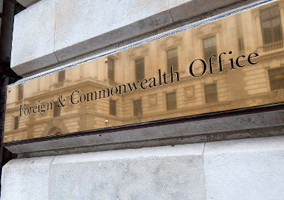The chancellor of the exchequer has committed to a “new, holistic, place-based approach” to funding community projects and programmes.
As part of the Spending Review yesterday, Rishi Sunak announced a £4bn Levelling Up Fund to deliver a range of community projects by the end of this parliament.
The Spending Review document also set out plans for the much-anticipated UK Shared Prosperity Fund. This is the fund that is intended to replace funding that previously came from the European Union.
Further details for both funds will be announced in early 2021.
Charities said it was important that they be involved in the next steps but also described yesterday as a "missed opportunity".
£4bn Levelling Up Fund
Some £600m will be available through this fund next year for projects that have the support of their local community. Up to £4bn will be available by May 2024.
The government will publish a prospectus for the fund and launch the first round of competitions in 2021.
Sunak said: “For many people, the most powerful barometer of economic success is the change they see and the pride they feel in the places they call home.
“People want to be able to look around their towns and villages and say, yes: our community – this place – is better off than it was five years ago.
“For too long, our funding approach has been complex and ineffective.”
This new fund will invest in local projects worth up to £20m. This includes bypasses and other local road schemes, bus lanes, railway station upgrades, regenerating eyesores, upgrading town centres and community infrastructure, and local arts and culture.
The fund will be managed jointly between the Treasury, the Department for Transport and the Ministry of Housing, Communities and Local Government.
Shared Prosperity Fund
After the UK voted to leave the European Union, the government committed to creating a Shared Prosperity Fund (SPF), which will replace the European Structural and Investment Funds that are no longer available to UK organisations.
There has been no formal consultation with the sector about the fund, but charities have argued that charities and communities should be involved in designing it.
Today’s spending review document said the new fund would be UK-wide, “using the new financial assistance powers in the UK Internal Market Bill”.
Programmes that received support “will display common branding”, and total UK funding will be around £1.5bn a year.
The document said: “A portion of the UKSPF will target places most in need across the UK, such as ex-industrial areas, deprived towns and rural and coastal communities. It will support people and communities, opening up new opportunities and spurring regeneration and innovation.”
A framework for what will be prioritised is likely to include things like work-based training investment in communities, including cultural and sporting facilities, civic, green and rural infrastructure, and community-owned assets.
A second tranche of funding will be aimed at “people most in need through bespoke employment and skills programmes that are tailored to local need”.
The government said this will look to specifically support people who face particular barriers.
Further details will be published in the spring. There will be extra funding in 2021-22 to help local areas prepare for the introduction of the UKSPF.
'Significant questions remain'
In response, charities said that the new funding was an opportunity, but also urged the government to involve the sector more.
Paul Winyard, policy manager at NCVO, said: “Thankfully more details on the fabled UKSPF have finally emerged. But significant questions remain; not least what cut of the UKSPF will go to marginalised communities and what role will charities play in the pilot schemes. The sector will be eagerly awaiting the release of details on the UKSPF and the new ‘levelling up’ fund next year.”
On the government's broader agenda, he added: “The government has the unenviable task of trying to navigate some very choppy economic waters created by the pandemic and the forthcoming end of the Brexit transition period. But the failure to focus more on social infrastructure and recognise the financial hardship that the voluntary sector is facing was a missed opportunity for a government attempting to ‘level up’ communities.”
Meanwhile Caron Bradshaw, CEO of Charity Finance Group, said: “Until government recognises our role in achieving its ambitions, it will continue to miss opportunities to deliver real change.
“The ‘Levelling Up’ £4bn investment is welcome and we are keen to see how it will be distributed, how quickly and to whom, but there is an important context this is set against which includes the depth and breadth of local authority cuts over the past decade, and the immediate rising demand in unmet needs caused by both the pandemic and the potential future consequences of a WTO Brexit. We would hope and expect to see a quick injection of resources into those communities that have been hit hardest, rather than a bidding war.”
Tom Collinge, policy manager at the charity think tank NPC, said: “It’s good to see a desire for place-based approaches to levelling up, something we have long called for, but charities must be involved in decision making. Charities need to be proactive in showing why they are best placed to turn this money into tangible change in people’s lives. There is the real risk otherwise that all of this will get gobbled up in the bypasses and train stations the chancellor is so keen on.”
This was echoed by Matt Whittaker, CEO of economics charity, Pro Bono Economics, who said: “To succeed in levelling up the country as we crawl out of crisis mode, we need investment in social infrastructure, not just physical infrastructure. Reopening closed rail stations and refurbishing local buses will only go so far towards tackling the deep social scars coronavirus leaves behind.
“The chancellor’s new £4bn Levelling Up fund is an opportunity to draw in the community groups, charities and social enterprises that are tackling Covid’s social scarring every day.
“Putting civil society’s expertise at the heart of our policy making will be key to meeting the government’s aim to build back better. However, there are real questions to be asked about how the government can achieve that while also hinting at budget cuts to the Office for Civil Society in charge of this vital work.”
Related articles












